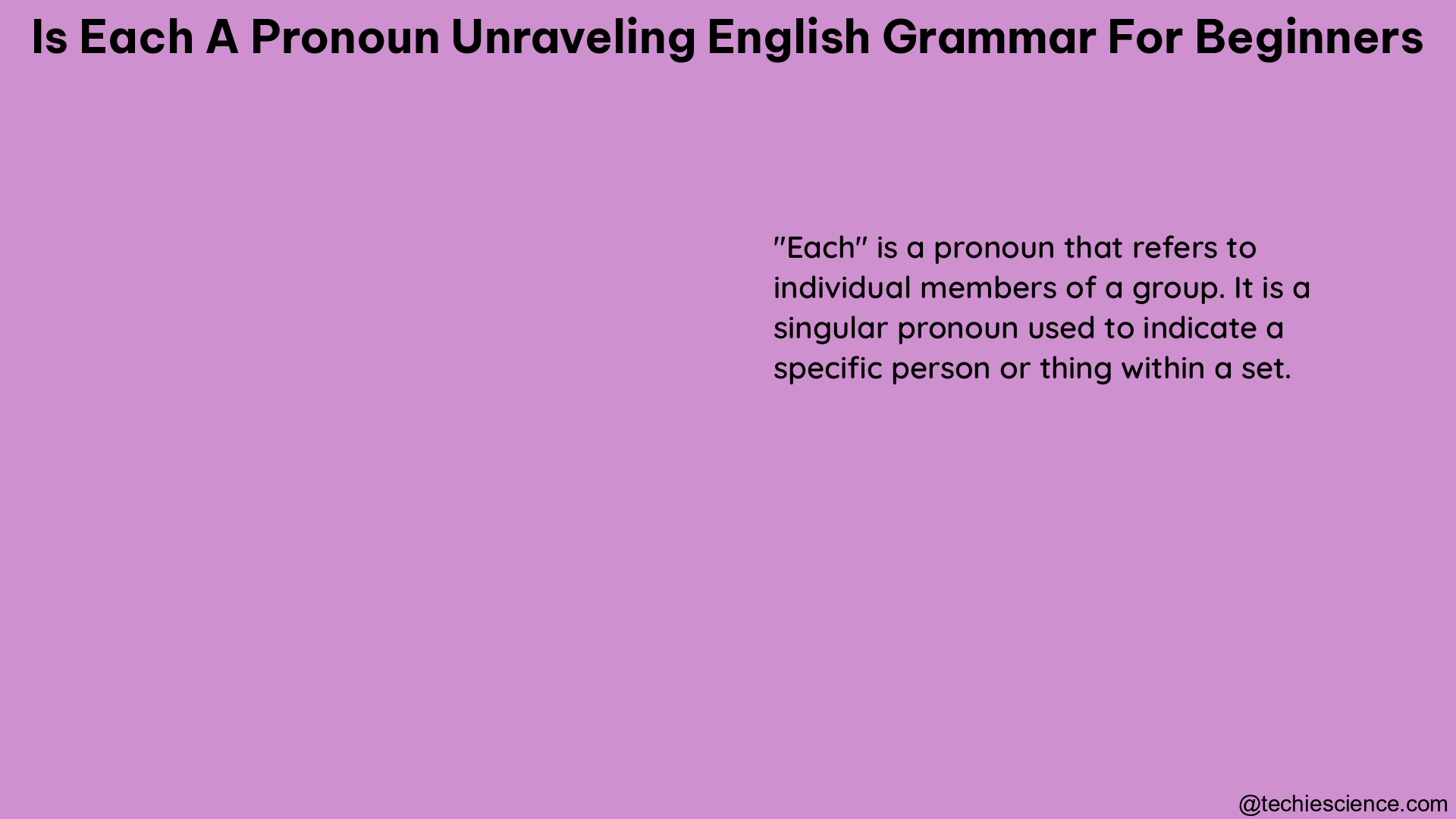English grammar can be complex and nuanced, and understanding the role of “each” in sentences is crucial for effective communication. Here, we will delve into the specifics of “each” and its grammatical classification.
What is a Pronoun?
A pronoun is a word that substitutes for a noun or another pronoun in a sentence. Pronouns are used to avoid repetition and to make sentences more concise. Examples of common pronouns include “he,” “she,” “it,” “they,” “we,” “you,” and “I.”
Is “Each” a Pronoun?

No, “each” is not typically classified as a pronoun. Instead, “each” is considered a determiner or a collective noun. Determiners are words that precede and modify nouns, providing information about the noun’s quantity, quality, or specificity. In the case of “each,” it is used to emphasize the individuality or uniqueness of the items or members within a group.
Understanding the Role of “Each”
“Each” is commonly used to highlight the individual nature of items or members within a group. Here are some examples:
- “Each student received a prize.” (In this sentence, “each” emphasizes that every individual student received a prize.)
- “Each of the team members has a unique skill.” (Here, “each” is used to underscore the individual talents of the team members.)
Subject-Verb Agreement with “Each”
When using “each” in a sentence, it is crucial to maintain singular verb agreement. This means that even though “each” may refer to multiple items or individuals, the verb that follows should be in the singular form. Here are some examples:
- “Each has a different story to tell.” (The verb “has” is in the singular form, agreeing with “each.”)
- “Each of the books on the shelf is in excellent condition.” (The verb “is” is singular, matching the singular nature of “each.”)
Tips for Mastering the Use of “Each”
To ensure correct usage of “each,” follow these guidelines:
- Use “each” with a singular verb form: Remember that “each” is a singular determiner, so the verb that follows should be in the singular form.
- Omit “each” and assess the verb: If you remove “each” from the sentence, the remaining subject should be singular, and the verb should agree with it.
- Analyze sentences with correct “each” usage: Study examples of sentences where “each” is used correctly to understand its proper application.
Conclusion
In summary, “each” is not a pronoun but rather a determiner or collective noun used to emphasize the individuality or uniqueness of items or members within a group. Maintaining singular verb agreement when using “each” is crucial for effective communication in English.
References:
- https://iasce.net/decoding-grammar-pronoun-english/
- https://twominenglish.com/each-has-or-each-have/
- https://dictionary.cambridge.org/us/grammar/british-grammar/each

The lambdageeks.com Core SME Team is a group of experienced subject matter experts from diverse scientific and technical fields including Physics, Chemistry, Technology,Electronics & Electrical Engineering, Automotive, Mechanical Engineering. Our team collaborates to create high-quality, well-researched articles on a wide range of science and technology topics for the lambdageeks.com website.
All Our Senior SME are having more than 7 Years of experience in the respective fields . They are either Working Industry Professionals or assocaited With different Universities. Refer Our Authors Page to get to know About our Core SMEs.